Explore the life and legacy of the marquis de Lafayette, including his 1824-1825 farewell tour, through these lectures and other historical programs, which accompany the exhibition Fete Lafayette: A French Hero’s Tour of the American Republic. Click on the links below to learn more about each program and, if the event has already taken place, to watch a video of the presentation.
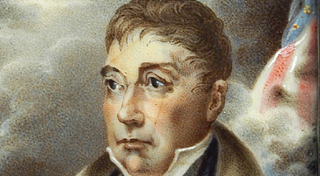
The Marquis de Lafayette and his Farewell Tour
March 27, 2024
Join historian Alan Hoffman and Chuck Schwam, executive director of the American Friends of Lafayette, for a discussion of Lafayette’s farewell tour and its significance, and a preview of the commemorative events planned to celebrate its bicentennial.
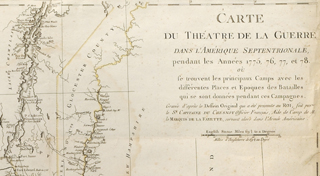
A Map Created by Lafayette’s Aide-de-Camp for King Louis XVI
April 19, 2024
In this Lunch Bite object talk, the Institute’s historical programs manager, Andrew Outten, discusses a map made by Lafayette’s aide-de-camp and mapmaker Michel Capitaine du Chesnoy that was produced in 1779 for King Louis XVI and used by Lafayette to bolster his petition for increased support and expansion of French military operations in America.
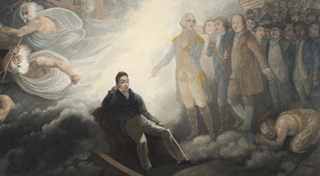
A Hero of Two Worlds: The Marquis de Lafayette in the Age of Revolution
May 16, 2024
For over fifty incredible years, Lafayette fought courageously on both sides of the Atlantic as a soldier, statesman, idealist, philanthropist and abolitionist. In this lecture, historian and best-selling author Mike Duncan discusses the remarkable life of the marquis de Lafayette and the thrilling story of his lifelong quest to defend the principles of liberty and equality.
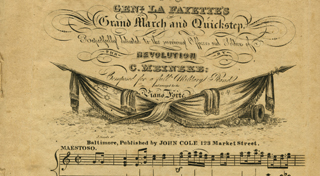
Music from the Life and Tour of Lafayette
June 11, 2024
This special concert features David and Ginger Hildebrand of the Colonial Music Institute performing and discussing various musical pieces created during Lafayette’s life and especially his farewell tour of America.
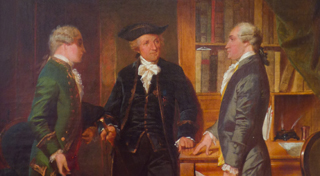
The Marquis de Lafayette in the American Revolution
August 28, 2024
The American Revolution offered the marquis de Lafayette his first chance to serve the cause of liberty. Historian Iris de Rode highlights Lafayette’s monumental career during the Revolutionary War and discusses the impact of his service on the latter years of his life.
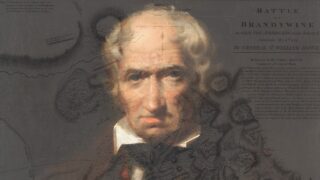
A Portrait of Andrew Wallace, the “Rescuer of Lafayette” at Brandywine
September 13, 2024
In this Lunch Bite object talk, Historical Programs Manager Andrew Outten discusses a portrait of Revolutionary War veteran Andrew Wallace, painted by John Neagle in 1831, and examines the validity of Wallace’s claims to have aided Lafayette on the battlefield after being wounded in the Battle of Brandywine.
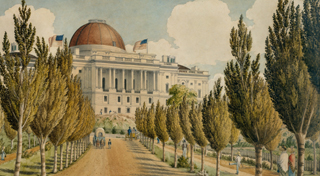
The Marquis de Lafayette Returns: A Tour of America’s National Capital Region
October 9, 2024
Although the farewell tour brought Lafayette to each state in the Union, the majority of his time was spent in Washington, D.C., Virginia and Maryland. In this lecture, public historian Elizabeth Reese traces Lafayette’s route throughout the National Capital Region, highlighting the locations and people the famous general held closest to his heart.
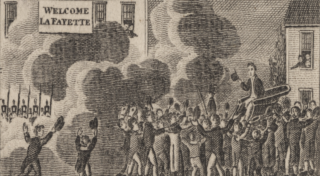
Welcome to Washington, Lafayette!
October 13, 2024
Join us and the American Friends of Lafayette for a reception commemorating the 200th anniversary of Lafayette’s first arrival to the nation’s capital. Guests can greet Lafayette, view our current exhibition and enjoy hors d’oeurves and refreshments while toasting the Frenchman.
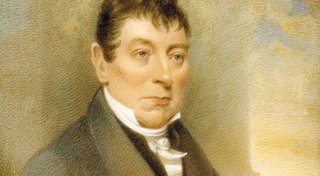
A Portrait Miniature of the Marquis de Lafayette Wearing the Society of the Cincinnati Eagle Insignia
December 6, 2024
In this Lunch Bite object talk, the Institute’s deputy director and curator, Emily Parsons, examines a portrait miniature painted of Lafayette by Charles Fraser in Charleston, S.C., in March 1825.
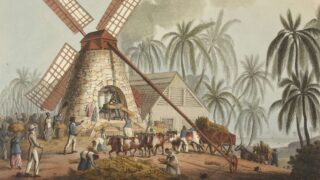
Transatlantic Abolitionism in the Age of Revolution
December 17, 2024
Throughout his life, Lafayette fought vehemently for personal freedoms. His most extensive efforts in support of human liberty were his work to end slavery and the African slave trade. John Oldfield, professor emeritus of slavery and emancipation at the University of Hull (UK), examines the anti-slavery debates of the late eighteenth and early nineteenth centuries that influenced Lafayette’s opposition to slavery.